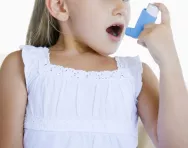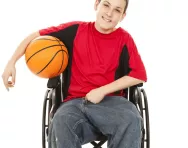Important update from TheSchoolRun
For the past 13 years, TheSchoolRun has been run by a small team of mums working from home, dedicated to providing quality educational resources to primary school parents. Unfortunately, rising supplier costs and falling revenue have made it impossible for us to continue operating, and we’ve had to make the difficult decision to close. The good news: We’ve arranged for another educational provider to take over many of our resources. These will be hosted on a new portal, where the content will be updated and expanded to support your child’s learning.
What this means for subscribers:
- Your subscription is still active, and for now, you can keep using the website as normal — just log in with your usual details to access all our articles and resources*.
- In a few months, all resources will move to the new portal. You’ll continue to have access there until your subscription ends. We’ll send you full details nearer the time.
- As a thank you for your support, we’ll also be sending you 16 primary school eBooks (worth £108.84) to download and keep.
A few changes to be aware of:
- The Learning Journey weekly email has ended, but your child’s plan will still be updated on your dashboard each Monday. Just log in to see the recommended worksheets.
- The 11+ weekly emails have now ended. We sent you all the remaining emails in the series at the end of March — please check your inbox (and spam folder) if you haven’t seen them. You can also follow the full programme here: 11+ Learning Journey.
If you have any questions, please contact us at [email protected]. Thank you for being part of our journey it’s been a privilege to support your family’s learning.
*If you need to reset your password, it will still work as usual. Please check your spam folder if the reset email doesn’t appear in your inbox.
Managing asthma in primary school

Almost two thirds of children with asthma have had an attack at school. Yet only a quarter of teachers would feel confident dealing with a child having an asthma attack.
Under the Children and Families Act 2014, all schools, including free schools and academies, are required by law to make appropriate arrangements for supporting pupils with long-term health needs, including asthma.
‘On average, two children in every classroom in the UK are living with asthma, and just a quarter of teachers say they would feel completely confident knowing what to do if a pupil had an asthma attack,' says Kay Boycott, chief executive of Asthma UK. ‘This is putting children’s lives at risk on a daily basis.’


Boost Your Child's Learning Today!
- Start your child on a tailored learning programme
- Get weekly English & maths resources sent direct to your inbox
- Keep your child's learning on track
How asthma affects your child at school
Asthma is the most common long-term health condition affecting primary school children, and it can make school life difficult for them.
There’s evidence that children with asthma can drop a grade per subject at exam times due to their symptoms being poorly controlled.
This is a particular worry for children who also have hayfever: a condition that affects 80% of people with asthma. High pollen counts can trigger asthma attacks, especially if your child isn’t taking antihistamines alongside their usual medication.
Asthma can affect children’s sleep, as the chemicals that suppress inflammation switch off at night. This can have a knock-on effect on how they perform at school.
Children with asthma may struggle to take part in PE lessons, particularly outdoors. Teachers and parents often worry about them having an asthma attack, and prefer them to sit out. However, physical exercise actually improves lung function: if your child’s asthma flares up during PE, the likelihood is that it’s not being properly controlled.
There’s also a spike in children being admitted to hospital because of their asthma in September, when they go back to school. This is because colds and other viruses are prevalent at this time, and if a child hasn’t kept on top of their medication regime during the summer holidays, it can leave them vulnerable.
Helping your child manage asthma at school
Asthma UK recommends taking the following steps to help your child manage their asthma at school:
- Find out who has responsibility for your child’s asthma. In primary schools, this will usually be their teacher, although the school nurse (who usually works for the local authority and visits schools on an occasional basis) could also be a useful contact. Ideally, your child should have an Individual Healthcare Plan (IHP) that sets out how their asthma will be managed, although often, schools only produce these for children whose asthma is causing them problems.
- Book a meeting with your child’s teacher and the school nurse. At this meeting, you can talk through your child’s asthma action plan: a document that explains exactly what to do if they have asthma symptoms. If you don’t have one, you can download a free asthma action plan template from Asthma UK and go through it with your child’s GP or asthma nurse.
- Make sure your child takes their (blue) reliever inhaler to school. This should be named and kept accessible. Make sure your child’s teacher knows how they should use the inhaler, especially if your child has a spacer.
- Plan for emergencies. The school needs to know what to do if your child has asthma symptoms and when to call 999.
Asthma attacks at school
Although asthma can be controlled by taking the right medication and avoiding triggers, attacks can happen without warning.
Your child’s teacher and other school staff should be made aware of the signs that they’re having an asthma attack. Their asthma action plan should set out the steps that should be taken, including information about when to call for an ambulance.
Schools are allowed to keep a spare reliever inhaler for emergency use for any pupil who needs it, but it’s always best if your child has their own reliever on hand. If they’re having an asthma attack, they shouldn’t be told to fetch their own inhaler; someone should get it for them.
‘Tragically, children have died from asthma attacks in school, so it’s absolutely vital that schools have access to an emergency reliever inhaler if a child is having an asthma attack,’ says Kay.
It’s also important that your child isn’t left alone: they must have an adult with them until they feel better.
'Teachers are taking my children's asthma seriously'
Josie Truscott, 49, from Cheltenham, has three children, Amy, 18, Ruth, 15 and Zac, 12, who all have asthma.
'My children were diagnosed with asthma when they were babies. Amy and Zac were particularly hard to stabilise, but their school is very switched on about the whole issue, which was evident when Ruth was going to a hockey match. The teacher phoned me up because Ruth had forgotten her inhaler, to find out if they needed to go back to school to get it. She had the common sense to realise that some children's asthma is triggered by exercise, which was very reassuring. It made me realise that the teachers at this school are taking the issue seriously.'
Asthma advice for parents
For further advice from an asthma nurse specialist, call the Asthma UK Helpline on 0300 222 5800. You can also visit their website for information about managing childhood asthma at school and in general.








